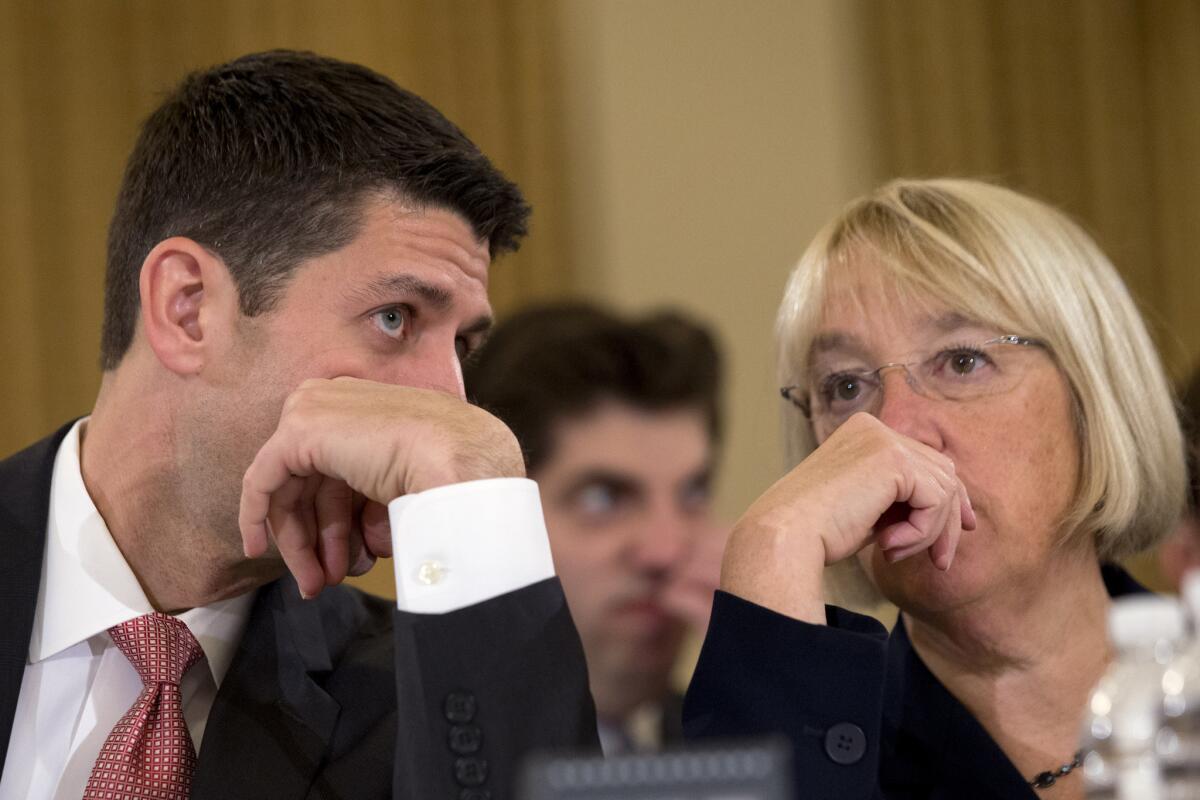Congressional budget negotiators reach a deal

WASHINGTON – Congressional negotiators reached a budget deal Tuesday that would end the possibility of another government shutdown for the next two years. But the agreement faced strong opposition from conservative groups that could jeopardize its prospects of passage in the House.
“Because of this deal, the budget process can now stop lurching from crisis to crisis,” said Sen. Patty Murray (D-Wash.), chairwoman of the Senate Budget Committee.
Her Republican counterpart, House Budget Committee Chairman Paul D. Ryan (R-Wis.), said conservatives should support the agreement because it would further reduce the federal deficit and contained no new tax increases.
But that did little to placate leading conservative groups, who attacked the deal even before its details were announced because it would undo billions of dollars in across-the-board “sequester” budget cuts that began to take effect this year.
“We’re going to hold them accountable if they go back on sequester,” said Tim Phillips, president of the conservative Americans for Prosperity. “The message is simple: Keep your word.”
“There’s a real concern about giving up the sequester,” said Sen. Orrin G. Hatch (R-Utah), adding that he would be disinclined to back such a deal. “Republicans know that the one major victory they had was the sequester.”
The House was expected to vote on the package by Friday. If the deal survives that test, it would move to the Senate, where Democrats have a majority.
The agreement sets the total level of federal government spending for programs governed by annual appropriations bills at $1.012 trillion for 2014. Under the sequester law, that would have been limited to $967 billion. Spending would increase to $1.014 trillion for fiscal 2015. That so-called top-line budget number marked a win for Democrats.
In return, Democrats agreed to cuts in benefits for some federal retirees, among other reductions.
lisa.mascaro@latimes.com
More to Read
Get the L.A. Times Politics newsletter
Deeply reported insights into legislation, politics and policy from Sacramento, Washington and beyond. In your inbox three times per week.
You may occasionally receive promotional content from the Los Angeles Times.







